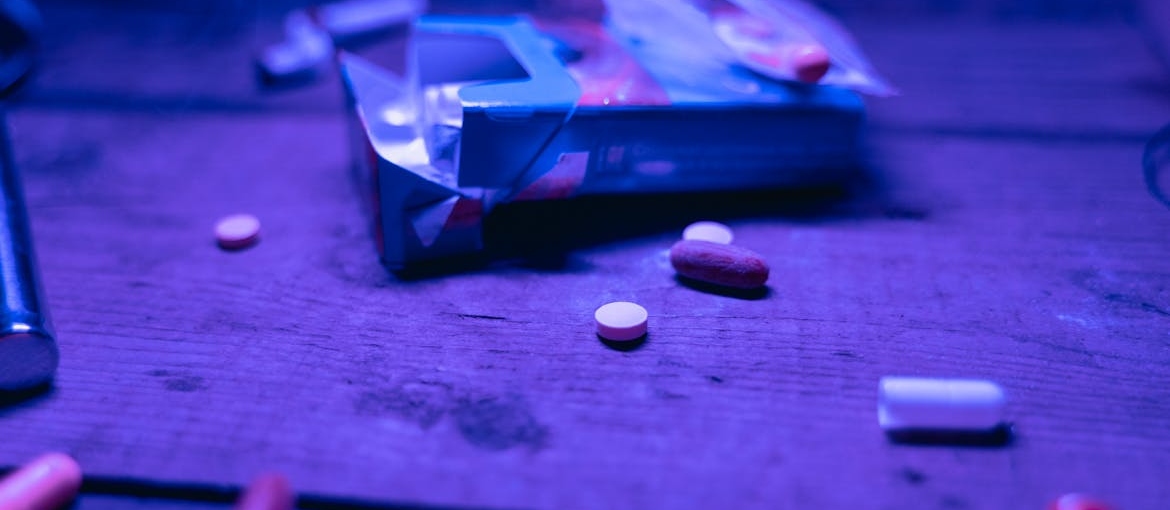Many people ask, is ecstasy a depressant or a stimulant? The answer isn’t simple. MDMA, known as ecstasy or molly, affects both the mind and body in powerful ways. It speeds up your system like a stimulant, yet also creates emotional lows that feel like a depressant. What starts as a party drug can quickly lead to anxiety, memory loss, and dependence. If you’ve noticed changes in your mood or behavior after using ecstasy, you’re not alone. Many people struggle to understand what’s happening to them. Treatment centers such as Harmony Ridge Recovery Center WV help people regain control of their mental health and rebuild their lives. Learning the truth about MDMA is the first step toward recovery and lasting stability.
What Is Ecstasy (MDMA)?
Ecstasy, also known as MDMA, is a synthetic drug that changes how your brain handles mood and energy. People often use it for its intense feelings of connection and euphoria. The difference between MDMA and ecstasy lies in purity—MDMA is the main chemical, while ecstasy often contains other harmful substances.

Many users don’t realize the risks behind these pills or powders. Is ecstasy a stimulant or depressant? It acts as both, speeding up the body while also affecting mood. Is ecstasy an antidepressant? No, it actually depletes serotonin, which can worsen depression over time. So, what class of drug is ecstasy? It’s classified as a Schedule I substance, meaning it has a high potential for abuse and no approved medical use.
Is Ecstasy a Depressant or a Stimulant?
People often wonder, is ecstasy a depressant or a stimulant. The truth is that it acts as both. MDMA affects chemicals in the brain that control mood, energy, and sleep. While it speeds up your system like a stimulant, it also brings emotional lows that resemble depressant effects. This mixed reaction makes it dangerous and unpredictable. Understanding how these effects work helps explain why ecstasy can harm both body and mind.
How MDMA Combines Effects of Both Drug Types
Many people ask, is ecstasy a depressant because they notice the emotional crash after using it. MDMA releases large amounts of serotonin, dopamine, and norepinephrine, which boost energy and empathy. However, once those chemicals deplete, sadness and exhaustion follow. This rollercoaster can easily lead to dependence. Treatment at a stimulants addiction rehab center focuses on restoring balance and helping people recover from these mood swings.
Doctors often use therapy and medication to stabilize brain chemistry. Combining professional care with emotional support helps rebuild mental strength. Ecstasy may appear harmless at first, but its impact runs deep. Long-term use can change how your brain works, leading to lasting emotional problems. Recognizing this pattern is key to preventing addiction and beginning recovery.
The Euphoric High: What Makes It Feel Stimulating
Ecstasy gives a burst of energy and confidence that draws many people in. During the high, users feel emotionally open and alert, creating a false sense of connection. But this stimulation comes at a cost, as the brain’s chemicals are pushed to extreme limits:
- Increased energy: MDMA triggers adrenaline, causing restlessness and hyperactivity.
- Heightened mood: Dopamine spikes create intense joy and confidence.
- Enhanced empathy: Serotonin surges make people feel closer to others.
- Physical excitement: Elevated body temperature and heart rate increase activity levels.
- Distorted perception: Senses become exaggerated, making lights and sounds feel overwhelming.

The Emotional Crash: Why It Mimics Depressant Effects
After the high fades, many ask again, is ecstasy a depressant. The crash can feel just like one. This drop happens when serotonin levels plummet, leaving the brain drained. People often experience sadness, anxiety, and fatigue after the effects wear off:
- Depressed mood: Serotonin depletion causes deep sadness.
- Exhaustion: The body struggles to recover from overactivity.
- Sleep issues: Brain overstimulation disrupts natural rest cycles.
- Anxiety: The emotional crash leads to panic or fear.
- Irritability: Mood swings and frustration become more frequent as serotonin levels remain low.
Recognizing Signs of Ecstasy Addiction
Addiction to ecstasy often develops slowly, making it hard to notice at first. You may see changes in sleep, mood, or social behavior that don’t seem connected. Over time, cravings and emotional crashes become stronger. Treatment programs offering dual diagnosis treatment in West Virginia help people address both addiction and mental health issues together.
Signs of addiction include emotional ups and downs, isolation, and neglecting daily responsibilities. You might also notice increased anxiety or confusion after each use. Friends and family may point out changes before you see them yourself. Seeking help early can make recovery easier and prevent long-term harm. Recognizing these warning signs is the first step toward regaining balance and mental health.

Short-Term Effects of Ecstasy Use
The short-term effects of ecstasy may seem harmless at first, but they can quickly become dangerous. The drug overstimulates the brain, causing unpredictable reactions that vary from person to person. Users often mistake early symptoms for fun or excitement, not realizing the potential harm to their body and mind:
- Increased heart rate: The body works harder, raising the risk of dehydration.
- High body temperature: Overheating can lead to organ damage.
- Jaw clenching: Muscle tension is common during the high.
- Blurred vision: Vision problems appear as the brain becomes overstimulated.
- Emotional swings: Rapid mood shifts happen as serotonin spikes and drops.
- Loss of appetite: Many users skip meals, which leads to weakness and fatigue.
Long-Term Consequences of Ecstasy Abuse
Using ecstasy over time can cause lasting damage to your brain and emotional health. The drug drains important chemicals that regulate mood, memory, and sleep. Many people notice emotional problems long after they stop using it. Here’s what can happen after repeated use:
- Memory loss: The brain struggles to store and recall information.
- Chronic anxiety: Serotonin changes lead to ongoing tension and fear.
- Depression: Long-term chemical imbalance lowers mood and energy.
- Sleep problems: The brain’s natural rhythm becomes disrupted.
- Cognitive decline: Focus and decision-making weaken over time.
- Emotional numbness: It becomes harder to feel joy or connection naturally.
Rehab and Recovery Options for MDMA Addiction
When is ecstasy a depressant starts to feel personal, it’s time to seek help. Ecstasy addiction can affect your mind, body, and relationships. Treatment focuses on healing each part through therapy, medical care, and ongoing support. A good rehab program gives you tools to manage cravings, stabilize emotions, and rebuild your life. Let’s explore how treatment helps recovery and what options are available.
How Detox Helps Manage Withdrawal Symptoms
Detox is the first step toward recovery. It allows your body to clear MDMA and start healing. Withdrawal can cause depression, confusion, and fatigue, but medical support helps manage these effects safely. Programs that offer medication assisted treatment West Virginia use approved medicines to ease symptoms and lower relapse risk.
This approach gives your body a chance to reset while you begin emotional healing. Medical supervision ensures your safety, and professionals monitor your progress daily. The detox process is not only physical—it also prepares your mind for therapy. When combined with counseling, detox lays a strong foundation for recovery. Every small step during this phase builds stability and confidence for long-term change.

Therapies That Support Long-Term Recovery
After detox, therapy helps you understand what caused the addiction. Individual, group, and family sessions provide a safe space to heal. Many people start with individual therapy for addiction, which focuses on learning new coping skills and understanding triggers. Therapists use proven methods like CBT to change negative thought patterns and strengthen emotional control.
You’ll also develop strategies to manage stress and rebuild relationships. Therapy goes beyond managing symptoms—it helps you reconnect with yourself. Over time, you’ll gain confidence and learn healthier ways to handle challenges. Having emotional support during recovery makes a huge difference, and therapy gives you that structure and stability every step of the way.
Choosing the Right Drug Rehab Program for Your Needs
Choosing the right rehab program can shape your recovery journey. The best option depends on your needs, mental health, and level of addiction. Many people search for a drug rehab that accepts Tricare to find affordable treatment options. Whether you need inpatient care or outpatient support, insurance can help ease the financial burden.
A strong rehab program includes detox, therapy, and aftercare to support you from start to finish. The goal is to treat both the addiction and its emotional roots. Working with professionals gives you structure, accountability, and guidance. Recovery isn’t about perfection—it’s about progress and commitment. When you choose a trusted center, you gain a partner who helps you rebuild confidence and stability.

Protecting Your Mental Health After Ecstasy Use
Once recovery begins, rebuilding your mental health is the next challenge. MDMA can disrupt sleep, mood, and memory, so healing takes patience. Mental recovery focuses on restoring balance through rest, therapy, and lifestyle changes. Small daily habits make a big difference. Staying consistent helps the brain repair itself. Nutrition, movement, and emotional support are key parts of this process.
Rebuilding Brain Chemistry Through Nutrition and Sleep
Your brain needs proper care to heal from ecstasy’s effects. Nutrient-rich foods restore serotonin and dopamine, helping improve mood and focus. Sleep is just as important—it allows the brain to repair and reset. Regular sleep schedules can reduce anxiety and boost emotional stability. Avoiding alcohol or drugs speeds up recovery, too.
Many people notice better energy and mood once their diet and sleep improve. Even small steps like eating balanced meals, drinking water, and resting enough can rebuild your strength over time. Consistency is what helps the body recover. This phase may take time, but each healthy habit brings you closer to long-term healing.
The Role of Counseling and Support Groups
Ongoing therapy keeps you grounded during recovery. It helps prevent relapse and supports emotional growth. Joining a drug rehab for young adults or attending support groups provides connection and accountability. Talking openly with others who understand your experience builds trust and confidence. Counseling sessions allow you to process feelings and identify new coping strategies.
These programs remind you that you’re not alone, no matter where you are in your recovery. Group meetings and one-on-one sessions help you stay focused on progress. Support networks also strengthen motivation and reduce the chance of relapse. The sense of belonging that comes from sharing your story is one of the most powerful tools in healing.

Healthy Lifestyle Habits That Aid Mental Recovery
Long-term healing depends on the choices you make each day. Simple habits can help repair the brain and reduce stress. Making these part of your daily life supports your emotional and physical recovery:
- Exercise regularly: Movement releases endorphins that improve mood.
- Stay hydrated: Proper hydration helps regulate brain function.
- Spend time outdoors: Sunlight boosts serotonin levels naturally.
- Practice mindfulness: Relaxation techniques calm anxiety and improve focus.
- Maintain structure: Consistent routines keep your progress steady.
Don’t Wait for Things to Get Worse—Get Help Today
So, is ecstasy a depressant or a stimulant? The truth is, it acts as both—and that’s what makes it so dangerous. MDMA changes brain chemistry in ways that can cause lasting mental and emotional problems. If you’ve been using ecstasy and notice mood swings, anxiety, or depression, help is available. Recovery takes time, but with the right treatment and support, healing is possible. At our center, we help people rebuild their confidence and find peace after addiction. You don’t have to face this alone—our team is here to guide you toward recovery. To learn more or start treatment, contact us today.



